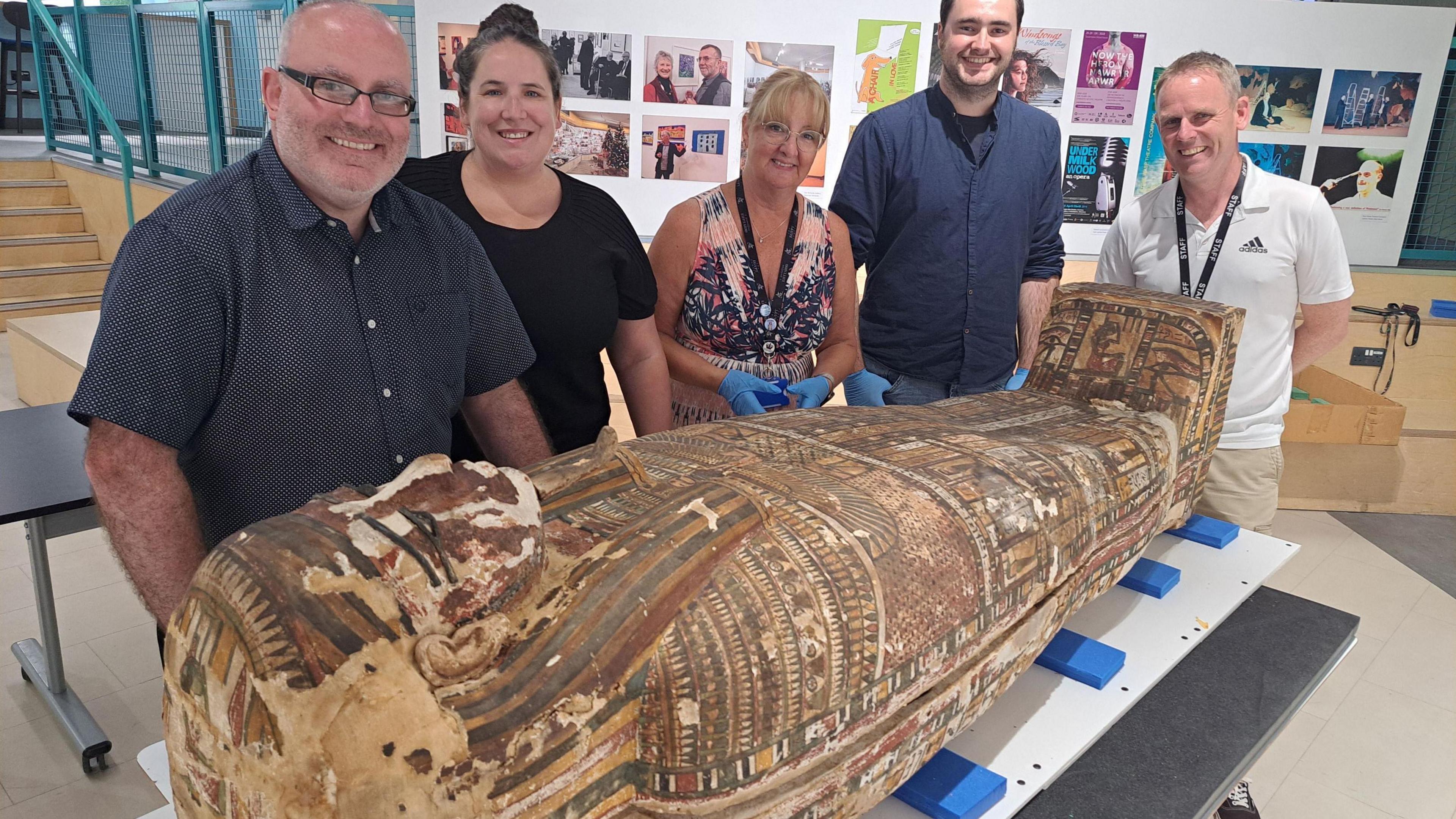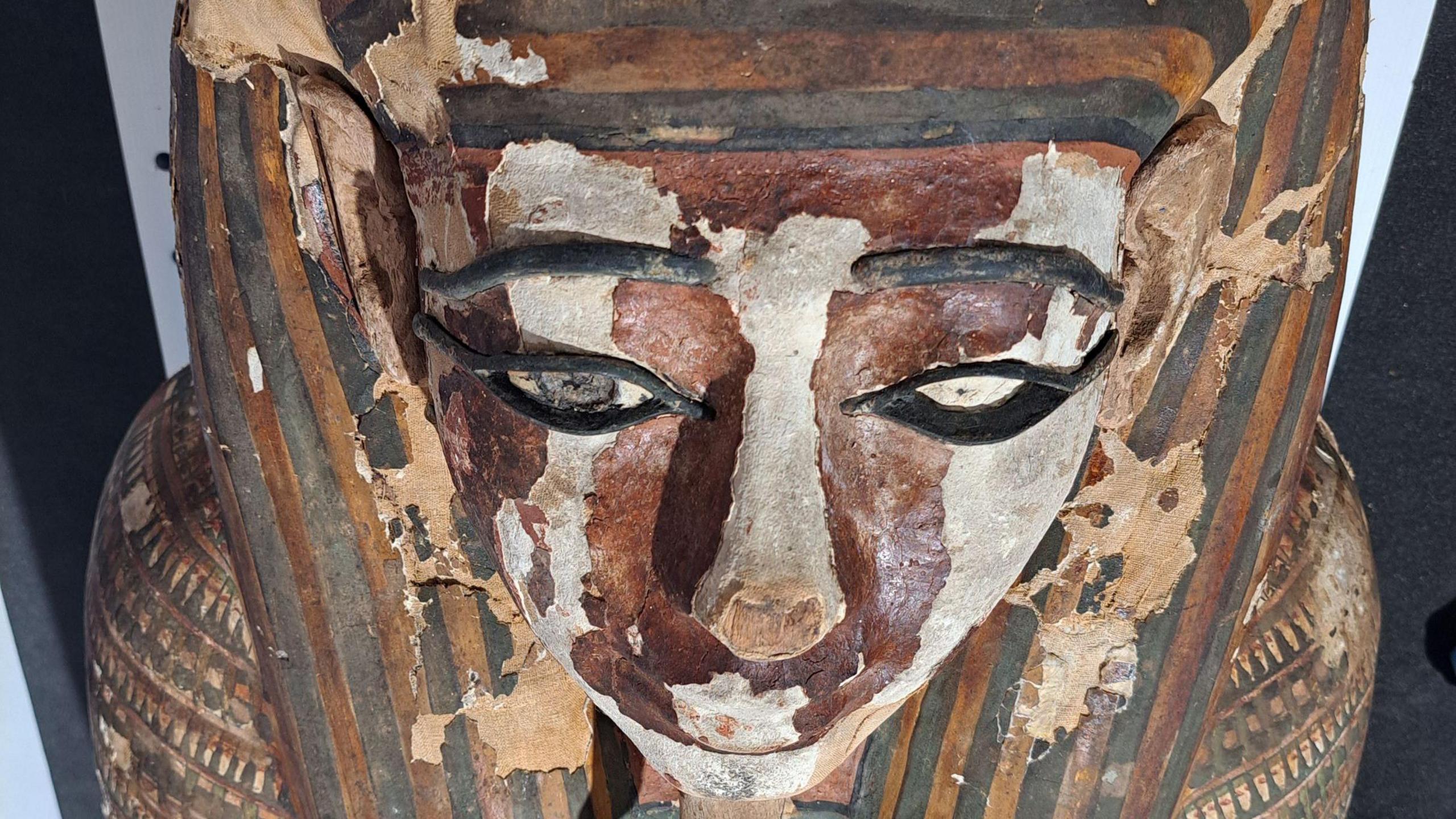Ancient Egyptian coffin finally given new life

Staff at Swansea University welcome back the artefect
- Published
An ancient Egyptian coffin has been restored after decades of restoration.
The artefact, believed to date from about 650 BC, is now back at Swansea University's Egypt Centre after thousands of hours of conservation work at Cardiff University.
The coffin, originally made for a man called Ankhpakhered in the Greek city of Thebes, was transported back under the watchful eye of the centre's curator Dr Ken Griffin.
Staff described the finished project as "beyond our wildest dreams".
How Wales' ancient rainforests inspired folklore
- Published18 February 2024
Drones shed new light on forgotten Welsh hillforts. Video, 00:00:48
- Published9 December 2023
Dr Griffin said: “The coffin had to be painstakingly cleaned, reconstructed and consolidated to prevent it from deteriorating further and we are thrilled to have it back again.
“It was gifted to us by Aberystwyth University in 1997 but details about its history are sketchy.
"It actually ended up being used as a storage box at one time, with other Egyptian objects placed in it for safekeeping,” he added.
Also among those carefully unpacking it as it arrived was museum manager Wendy Goodridge, who had originally brought the coffin to the School of History, Archaeology and Religion in Cardiff.
She said: “We weren’t sure what they would be able to do with it as it was in such a poor state.
"To see it now though, so wonderfully restored after so much hard work, is beyond the wildest dreams we had back then and definitely been worth waiting for.”

The coffin's wooden head was reattached in the process
During its time in Cardiff the coffin has been worked on by conservation experts and generations of students.
The university’s Phil Parkes explained that the wooden coffin was covered in textile and then had a thin layer of decorated plaster over the top.
He said: “Much of that textile had become detached over time and was just hanging loose.
"The separate wooden head was detached and there were a couple of large pieces of wood missing, the side of the base had fallen off and it was in a very sorry condition overall.
“The students have brought it back to a condition where the entire coffin is now stable and can go on display.”
Now repaired, brightly coloured depictions of Egyptian gods and hieroglyphs bearing messages for the afterlife can be clearly seen on the coffin, allowing egyptologists to gain a better understanding of its history.
They say markings on the lid show that it was later used for another occupant, a man called Djedher.
But when it arrived in the UK at the turn of the century it actually contained a female mummy.
It is speculated that this body may have been put in there to increase the coffin’s sale value to eager British collectors at the time.
The coffin is currently in storage but it is planned to put it on display in the House of Death gallery at the Egypt Centre.